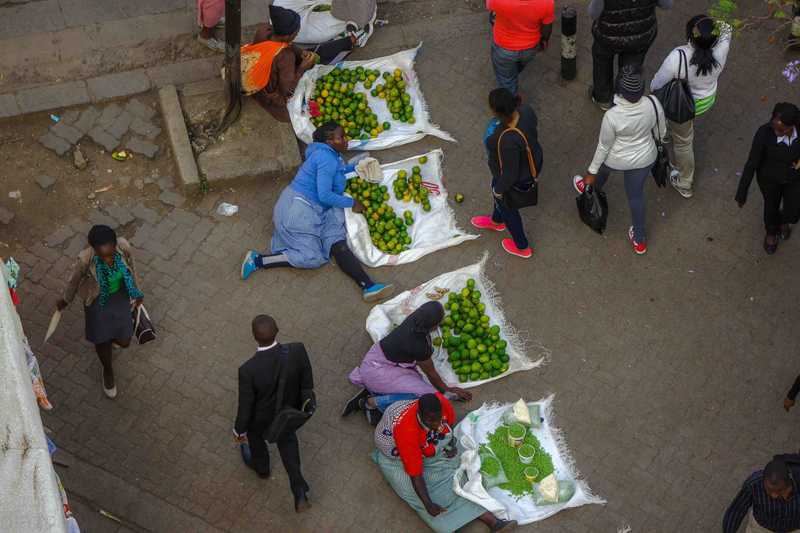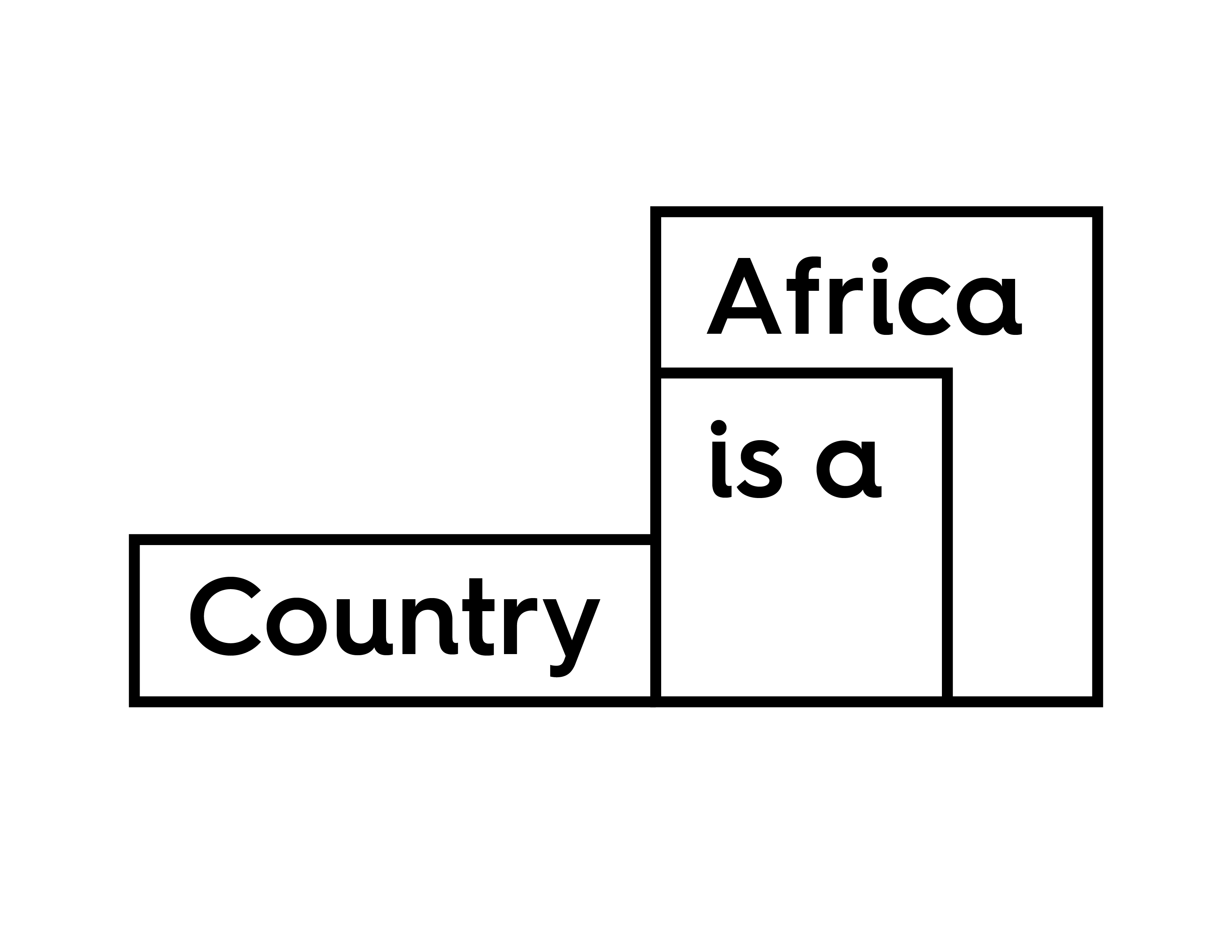
In August 2019, the Mathare Social Justice Centre in Kenya’s capital city, Nairobi, held a gathering, “Why don’t Kenyan talk about capitalism?”.
Mathare Social Justice Centre is a community based organization in Mathare that conducts campaigns on political accountability and social justice and documents cases of extrajudicial killings and police brutality in the low-income areas of Eastlands in Nairobi. The event was co-hosted by the Centre, Africa Is a Country, and the Review of African Political Economy. It drew on the work done in the ROAPE series, Capitalism in Africa, edited by political economist Jorg Wiegratz.
Earlier, in December 2018, Jorg Wiegratz had written in Africa Is a Country that many African countries are by now capitalist societies and analytically need to be treated as such when we talk about or write about them. And as the Centre wrote to us, “Kenya is deep in neoliberalism, characterized by high public and private debt, poverty, inequality, unemployment, stress, fraud, corruption, state violence, the criminalization of urban poor etc. In academic debates among scholars in Kenya, there is no analytical writing on the capitalist crisis in the country and on the capitalist political economy in Kenya generally.”
Now, the Centre has partnered with Africa Is a Country to produce a series—“Capitalism in My City”—of posts and videos to document everyday capitalism in Nairobi. The project is funded via a Fellowship I received from the Shuttleworth Foundation. The aim with “Capitalism in My City” is to “… analyze capitalism in the manner with which we interact and observe it as opposed to a very academic approach of analysis.” For this we are funding them to train eight local activists and other community members as journalists and videographers.
The Social Justice Centre will train the activists to do research and reporting to produce eight publication-ready articles and four publication-ready videos. Over the next year they will publish a series of articles and videos to be published on Africa Is a Country. The articles will be published in Swahili and English. The editors of the project are two local activists, Gacheke Gachihi and Lena Anyuolo. Gacheke is a social justice and human rights advocate. Over the last fifteen years he has been involved in community organizing in Kenya. He is a member of Bunge la Mwananchi (the Peoples Parliament) which is an organic grassroots based social movement, and is also the coordinator for Mathare Social Justice Centre. Lena is a writer and social justice activist with Mathare Social Justice Centre and Ukombozi library. The first post is by Gacheke and Lena.
– Sean Jacobs (Editor, Africa Is a Country)
I am Gacheke, in 2017 I first met my friend Antony Adoyo, today a community organizer and participatory action research coordinator with the Social Justice Center Working Group (SJCWG), a collective voice for the grassroots social justice movement in Kenya. During that time, he was preparing to graduate from the University of Nairobi with a Bachelor of Economics degree. He was a young man under 30 years, who had the great dream and vision of working with the Central Bank of Kenya. This was the dream career for many students in his class who studied finance and economics. They all hoped that after finishing university, they would get a well-paying job.
As we exchanged notes one day, my comrade to be Antony asked me if I could help get him a job with a mainstream human rights organization as he was about to graduate. I was greatly surprised that a university graduate from the University of Nairobi, the first university in the republic of Kenya, was seeking a job through me, a community organizer.
When Adoyo graduated in 2017, he invited me and other comrades to his graduation ceremony at his parents’ home. It was a two roomed dwelling in Dandora, one of the poor neighborhoods bordering Mathare. We celebrated his graduation with a humble meal of chapatis and beef stew. His father later led us in prayer; may his son bring hope and rescue his family from poverty, and relief for the hopelessness of the struggles for livelihoods in Dandora. This created in me a very strong impression of how ordinary parents have invested heavily in their children’s education as part of struggles for social liberation from poverty.
For many university graduates, liberating their parents from poverty or even helping to pay back the loans that their parents borrowed to pay their university school fees will not be possible. It is a question of social justice that many young university graduates are struggling, carrying university degree certificates—for medicine, engineering, economics, biotechnology and nursing—that remind them of the pain of toiling through a university education, only to “tarmac” (remain unemployed) for the next five years or more. They are living the crisis of capitalism in daily life.
One student who graduated with a degree in sociology told me that she stopped applying for jobs advertised in the newspaper as she feared that she would one day find a groundnut (peanuts) hawker selling the groundnuts wrapped with copies of her academic certificates and CV. She had sent out hundreds of application letters for jobs in Nairobi and suspected that these were thrown out and then picked up and used by groundnut hawkers.
I am Lena and I have done various jobs during my university holidays. I have worked as a flower delivery girl, delivering huge bouquets worth thousands of shillings to the affluent suburbs of Nairobi, only to be paid 500 Kenyan Shillings ($5 USD) for a whole day of work. After spending the money on fare and supper, there was nothing left.
As a waitress in one of the high-end coffee shops in Nairobi, I was paid 60 Ksh ($0.60 USD) an hour, worked six days a week for long hours standing all day, selling food that I can’t afford to the customers at the coffee shop, and generating sales worth hundreds of thousands of shillings for the company. Many of the waitresses and dish washers were university graduates who have worked in these slave-like conditions for over six years but can’t leave because there is no guarantee that they will find another job. And they know that there were many desperate university graduates and unemployed Kenyans who were willing to take the job for half the pay.
Mama Victor, another member of our social justice center working group and the coordinator of the Mothers of Victims and Survivors Network (for victims and survivors of police brutality and extrajudicial killings), worked as a casual domestic worker for six years in Eastleigh, a predominantly working class Somali neighborhood bordering Mathare. Many of the women domestic workers come from Mathare, Kiamaiko, Kariobangi, Korogocho, Kiambiu and other poor areas. They come to Eastleigh every day to look for work, and the desperation and hunger make them accept as little as 100 Ksh ($1 USD) to hand wash a big pile of laundry that can take over three hours to finish. Or it also makes them accept a big basin full of dishes for between 20 –50 Ksh ($0.20—0.50 USD). On average, each woman is paid 200 Ksh ($1.87 USD) for the laundry job. Competition from the Karamojong and Gisu migrants from Uganda makes the struggle for survival even harder.
Because of the living conditions, the Ugandan migrants accept to be paid between 2,000—3,000 Ksh ($20—30 USD) a month to be live-in domestic workers, a job that normally goes for 5,000 Ksh ($50 USD). Already, living on 5,000 Ksh a month is a starvation wage, because to rent a shack or a single room is 3,000 Ksh a month and the remaining 2,000 has to feed and clothe a family. Moreover, the conditions in which the women work are horrible. They face sexual harassment, rape and other forms of physical assault from their employers. Poverty is violence. It is a struggle for a dignified life in impossible conditions.
When we, Gacheke and Lena, spoke with our other struggling comrades, we heard about many other difficult situations. In Industrial Area, Nairobi’s industrial zone, the workers, who are mostly women, working in the horticultural companies exporting flowers or vegetables are subjected to dehumanizing conditions. The companies have a biometric system to check in. The workers have to report at 9.20 am and leave at 4.29 pm using fingerprints as their ID. Any lateness, of even one-minute, means that an arbitrary amount will be deducted from the wages which are 663 Ksh per day in one of the companies. Overtime is not compensated, and when it is peak season in the UK, they have to work longer hours in freezing conditions.
The horticultural industry in Kenya generated 153 billion Ksh in 2018, yet the employees of these companies work in freezers all day without warm protective clothing. If one of them happens to fall sick, they are fired rather than the company incur the expense of treating their employee. The company bosses open accounts for the workers without consent and have access to the secret PIN numbers and can withdraw from the employees’ bank accounts at will.
The Constitution of Kenya 2010 and the Labor Relations Act of 2007 gives every worker the right to join a union, but the companies oversee the movements of their workers and any hint of association with a union makes them vulnerable to sacking. The unions on the other hand do little to improve the welfare of their members and instead exploit the workers through membership fees. They are an extension of the greedy corporations, and workers are bled dry by the companies they work for, and are bled dry by the unions, their landlords and the taxes by the government.
The historical roots of the neoliberal labor market crisis can be traced to the early 1980s when the IMF and World Bank imposed structural adjustment policies to countries in the global South like Kenya. During this time, the neocolonial government was forced to stop investments in healthcare, education, housing and agriculture, so as to provide capitalists with a favorable environment for exploitation: to make super profits as basic services such as healthcare, education and housing were commodified and privatized. All of this has worsened during the COVID-19 lockdown.
We continue to struggle against state repression, violence and the dehumanizing legacy of a neoliberal capitalist economy whose guiding ideology is hate for the poor and greed for profit.
Our friendship with Antony introduced us to many graduates from the University of Nairobi, and we started a discussion session about the struggle for social justice and human rights in Kenya. It led to the formation of a network of university students who conduct political education in the informal settlements as part of creating political consciousness about the crisis of neoliberal capitalism. Through the women in the social movement struggle, we organize against exploitation of domestic workers labor and sexual and gender-based violence. The Ukombozi Library (Liberation Library) links the social justice centers and the university students to consolidate the efforts of the students fighting against state repression, police brutality in universities and massive unemployment.
It is the linking of our struggles between the students and informal workers, which will help us forge the path for political education and to foment a social justice movement in our struggle for liberation from the indignity of life in capitalism.
Snapshots of Nairobi’s labor market conditions:
Jackson: Security Guard
Nature of contract: I signed an employment contract with the firm that hired me. It explains the salary and the ways in which the contract can be terminated by both parties. It also has a code of conduct. I work 7 days a week from 5.00 pm to 5.00 am during this curfew period. On normal days, it’s from 6 pm to 6 am. My work is to open and close the gates and sign in and out visitors.
Was a bribe paid?: A friend told me about the job. I didn’t pay anything. The company then hires us out to the apartments, offices or malls that need to be guarded.
Minimum/maximum pay: I get paid 15,000 Ksh ($140 USD) a month gross.
Means of payment: A bank deposit.
Distance from work: From Kawangware to Kilimani area where I work is about 3 km. I normally walk to work.
Sick leave: The contract says we are allowed sick leave each year, but in reality it is difficult to get a full day off from work. I have to bring a doctor’s note confirming my illness to headquarters and, even then, they might deny you the day off. It’s a hectic process. If you’re sick for a long period of time, you just have to be tough and come to work or lose your job.
Maternity/paternity leave: No paternity leave is provided. There’s no maternity leave. If you get pregnant, you can’t do this job. It’s difficult; you’ll have to quit, or they’ll sack you.
Compensation for work injuries: None. You cater at your cost. There is an insurance for medical cases provided, but we have to co-pay 500 Ksh for every visit and it’s at a private hospital. It is also very basic and has a low limit. The doctor will also ask you to bribe them so that they give you a sick day off.
Occupational hazards: Drunk, unruly or rude residents who can twist a story and cause you to be transferred elsewhere that is far from home or lose your job completely. If the building is attacked, we have no means to protect ourselves or the people inside, as we have no weapons.
Mama Victor: Domestic worker
Nature of contract: I do laundry washing as casual labor. I used to work from Monday to Saturday, from 8 am to 5 pm. Sometimes you are told verbally that you will wash many clothes, wash dishes, take the kids their lunch in school near-by, then wash the lunch dishes.
Amount paid for bribe: Sometimes you can be hired through a labor contractor, with a monthly income of 5000 Ksh ($46 USD), then you pay the labor contractor 1000 Ksh for getting the work.
How many days a month or week do you work?: I used to be a casual worker and I worked five days per week when there was work. Sometimes I would also work on Saturdays for half a day and be paid 200 Ksh.
Minimum/maximum pay: For one day, you get paid 200 Ksh.
Means of payment: Cash
Distance from Work: From Mathare 4B it is like 3km to Eastleigh, the place of work.
Sick leave: There is no sick leave. When you get sick while working you are required to finish your job then you leave. But for some they don’t care if you are sick or not.
Maternity/paternity leave: Not provided.
Compensation for work injuries: Not provided. But if you get injured at work, some employers may take you to the hospital and abandon you there without even paying the hospital bills.
Occupational hazards: Competition from the Karamojong and Gisu migrants from Uganda. Because of the living conditions, the Ugandan migrants accept to be paid between 2,000—3,000 Ksh a month. It makes it hard to negotiate for 5,000 Ksh. Sexual harassment, rape, and physical assault in the households we work in are other hazards.
Lena Grace Anyuolo is a writer and social justice activist with Mathare Social Justice Centre and Ukombozi Library.
Gacheke Gachihi is the Coordinator of Mathare Social Justice Centre and a member of the Social Justice Centres Working Group Steering Committee in Nairobi, Kenya.
Photo: Pixsels






